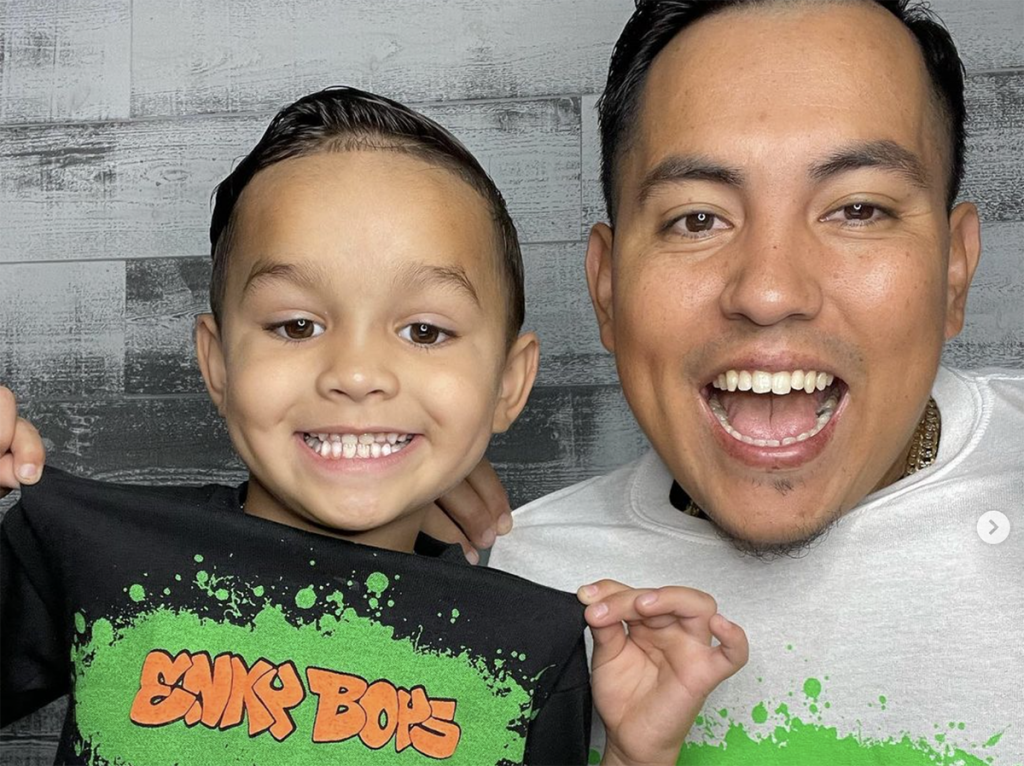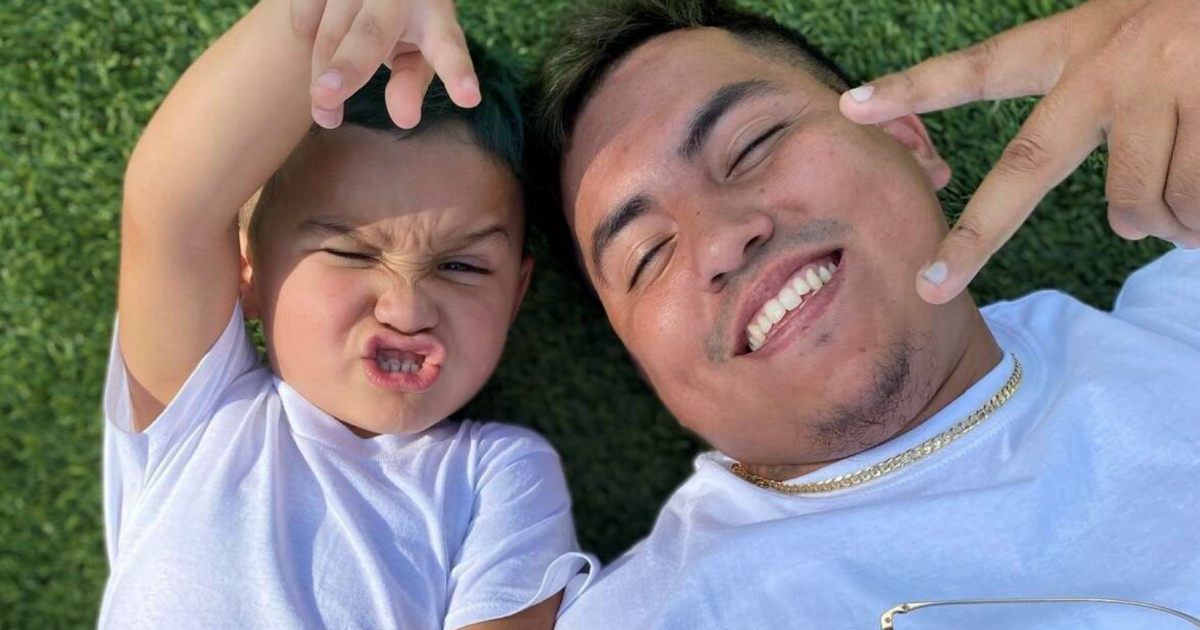The Power of Community
- Texas-based TikTok star Randy Gonzalezhalf of the father-son duo Enkyboysis super thankful to be getting support from his followers after his stage 4 colon cancer diagnosis.
- The struggling father, 34, is now able to afford the treatment that his insurance wouldn’t cover, and has amassed over $130,000 from fans following his plea for help. Gonzalez is starting treatment very soon at MD Anderson Cancer Center.
- Fortunately and unfortunately, Gonzalez’s story can help spread awareness on colon cancer, and help reduce perceived discomfort or embarrassment of the situation, and encourage people to go in and get checked.
And thankfully, after a family regroup to process the devastating news, the videos have returned.
Read More Randy received an outpouring of love and financial support from followers on his GoFundMe when he talked about how his insurance is not covering his treatment at MD Anderson Cancer Center.
Randy received an outpouring of love and financial support from followers on his GoFundMe when he talked about how his insurance is not covering his treatment at MD Anderson Cancer Center.“Hello, my name is Randy Gonzalez and this fundraiser is to help me to pay for my treatment at MDAnderson and to bring awareness for Colon Cancer to all young men who are not familiar with it,” he wrote on the fundraising page. “For all who may not know it runs in their family or for those who may have mutated it like myself! Thank you all for the love and support, without y'all we couldn't be the Enkyboys. F CANCER!”
Like other TikTok stars, the “Enkyboys” achieved success with silly skits and dance routines, one of their recent videos garnered over 4.5 million hits. “People love what we do,” Randy said. Apparently! Because now they are showing up for their beloved social media stars.
“It exploded overnight,” Randy said, of his GoFundMe. “We got close to $70,000 right now. I want everybody, every young man, 20 to 30, 30 to 40 to get checked for colon cancer.” It is currently at over $130,000 and Randy is able to start his treatment in a few weeks.
“Enkyboys is not just me and Brice,” said Randy. “It’s a family, and a movement, and now it’s going to stand for colon cancer awareness.”
@enkyboys Brice's first TikTok back from the pilot Lopez VS Lopez on NBC! KEEP YOUR 👀s OPEN ! #enkyboys #enkyboy @officialenkygirls ♬ My Name Is – D Billions
Diagnosing Colon Cancer
When you have a colonoscopy for colon cancer screening, the gastroenterologist performing the procedure is looking at the inside of your colon to detect polyps.
Polyps are small growths in the colon that aren't yet cancerous, but have the potential to develop into cancer. A polyp that's found during a colonoscopy is removed, which can actually prevent the development of cancer. A pathologist determines if it is a benign polyp or if it is colon cancer. Most polyps (about 95%) that are removed are precancerous, meaning that they have not yet progressed to cancer.
Looking for Polyps During Colonoscopy
In Gonzalez's case, if he would've gotten a colonoscopy sooner, his cancer could have potentially been prevented, or caught earlier. Many people hold off on getting a colonoscopy because of the perceived discomfort or embarrassment of the situation. That's why it is helpful to know that it's a painless procedure.
"When we see a polyp, we actually physically take the polyp out through the colonoscope," Dr. Zuri Murrell, a colorectal surgeon at Cedars-Sinai Medical Center in Los Angeles, Calif., previously told SurvivorNet. "That means we basically put a wire through with a little bit of a little flange at the end, and we pull the polyp out. Now, note there is no pain with that. Inside the colon, there are no pain fibers. So there's no pain."
When they take the polyp out, they send it to a lab.
"A pathologist basically cuts up the little polyp and looks under a microscope," Dr. Murrell explained. "And underneath the microscope, they can decide whether or not it is early cancer or whether it is just a precancerous polyp."
"But it would have been a cancer ultimately if you just let it grow and grow and grow," he continued. "Well, guess what? Now that it's out of your body, there is no more risk for that polyp to become a cancer."
Inherited Genetic Disorders in Colon Cancer
It is also important to note that about five-10 percent of colorectal cancers are caused by an inherited genetic mutation. When making your appointments for check-ups, it is crucial to gather knowledge of any family history of cancer to present it to your care team. Then they can make sure to schedule the appropriate tests to help pinpoint how high your risk factor may be for colon cancer and/or other types.
Learn more about SurvivorNet's rigorous medical review process.


